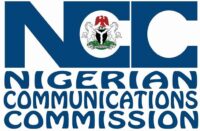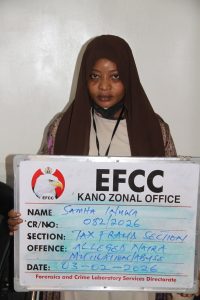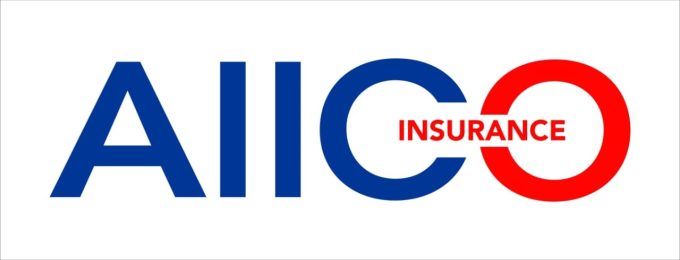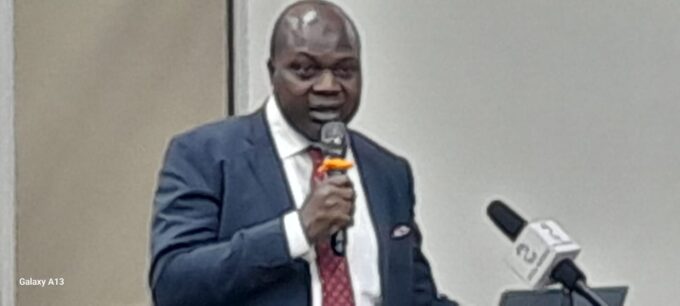The Securities and Exchange Commission (SEC) has stated that it firmly believes that financial literacy is not merely an academic subject; but a life skill, and indeed, a survival tool in today’s complex and rapidly evolving economy.
Director General of the SEC, Dr. Emomotimi Agama stated this at the handing over ceremony of the reviewed National Univeristies Commission’s (NUC) Curriculum on Securities and Investment Management(SIM) by the SEC appointed Committee of Experts (drawn from the capital Market and academia)in Abuja, Tuesday.
Agama said the important engagement, signifies not only institutional collaboration, but also the collective resolve to build a foundation for sustainable financial empowerment in Nigeria.
According to him, “Our gathering today goes beyond policy harmonisation or curriculum design. It is about shaping the financial mindset of future generations, equipping young Nigerians with the tools to make informed choices and contribute meaningfully to our development.
“Financial literacy determines how individuals earn, save, invest, and build wealth. It also influences how they engage with the financial system, ensuring they are not left behind in an increasingly digital and knowledge-driven economy.”
He said this is why the SEC remains deeply committed to embedding financial inclusion as a cornerstone of national development, beginning with education, where knowledge and values are first formed.
The SEC DG disclosed that the collaboration with the National Universities Commission (NUC) represents a strategic leap forward; a deliberate and forward-looking effort to integrate financial education into Nigeria’s national curriculum from the primary through to the secondary levels.
“This initiative recognizes that financial discipline and awareness are best nurtured early, when curiosity is highest and habits are still forming. Early intervention is key to producing responsible, confident, and financially empowered citizens.
“I am pleased to note that the pilot implementations in Nasarawa and Ibadan have yielded encouraging results, reflecting strong adaptability, enthusiasm, and measurable impact among teachers and students alike.
“These early successes affirm that when given the right tools and guidance, Nigerian youth can quickly understand and apply concepts such as saving, investing, budgeting, and responsible financial decision-making” he stated.
Beyond imparting knowledge, the SEC Boss said the effort is about empowerment, about giving young people the confidence to participate productively in financial and capital markets adding that as the apex regulator of the capital market, the SEC’s dual mandate to protect investors and deepen the market cannot be achieved in isolation from an informed, financially literate populace.
Agama said embedding financial education into the national curriculum, is investing in human capital, the most critical driver of sustainable, inclusive, and resilient economic growth.
He acknowledged the pivotal role of the NUC in harmonizing academic standards, ensuring that learning outcomes remain relevant to the evolving dynamics of our economy.
This partnership he added, strengthens the bridge between education and enterprise, between classroom theory and the financial realities of everyday life.
Agama noted that the SEC envisions a Nigeria where every student, regardless of background or region, understands the value of money, the principles of investment, and the discipline of financial planning. A Nigeria where financial inclusion is not a distant aspiration, but a lived experience that begins in the classroom and translates into responsible citizenship and national prosperity.
“This initiative could not have come at a more opportune time. As our nation pursues the goal of building a trillion-dollar economy, anchored on innovation, knowledge, and inclusive growth, financial literacy will be one of the strongest pillars supporting that ambition.
“The SEC remains committed to sustaining this momentum, through ongoing support for curriculum development, teacher training, resource provision, and stakeholder collaboration across all levels of education. We will continue to work closely with all relevant stakeholders to ensure that the lessons and successes from the pilot states are scaled nationwide.
“Together, we can institutionalize a financial literacy framework that not only empowers the youth but also strengthens the moral and economic fabric of our society” he added.
In his remarks, the Chairman of the Committee, Prof. Uche Uwaleke disclosed that the Committee was tasked with reviewing and expanding
the existing curriculum to reflect these developments with a view to making appropriate recommendations to the NUC that ensure that Nigerian universities are not only aligned with global trends, but are also equipping our students with the knowledge and competencies required to thrive in a modern capital market environment.
He said another equally important mandate of the Committee was to design and recommend to the NUC, a Basic Course in Capital Market Studies
to be taken by all first-year students across Nigerian universities. This
initiative is inspired by the recognition that awareness and understanding of the capital market remain relatively low, especially among young Nigerians. By introducing this foundational course, we
aim to promote early exposure, foster capital market literacy, and ultimately deepen financial inclusion — key pillars of the SEC’s developmental mandate.
Prof. Uwaleke said the Committee’s work was guided by a strong sense of purpose and collaboration. The Committee held a total of eight meetings — seven virtual and one in-person — during which we
engaged in extensive deliberations, research, and consultations. The
commitment and intellectual depth brought to the table by each
member were remarkable.
Furthermore, the Committee recommended to the Federal
Ministry of Education, that this basic course be extended beyond
universities to all tertiary institutions — including polytechnics and colleges of education — so that the culture of investment awareness and financial literacy can be mainstreamed across all segments of our educational system.
“As we present this Report today,
we do so with a sense of fulfilment and optimism. We believe that its implementation will mark a major milestone in building a financially
literate generation and in strengthening the foundation for a vibrant,
inclusive, and globally competitive Nigerian capital market” He stated.











